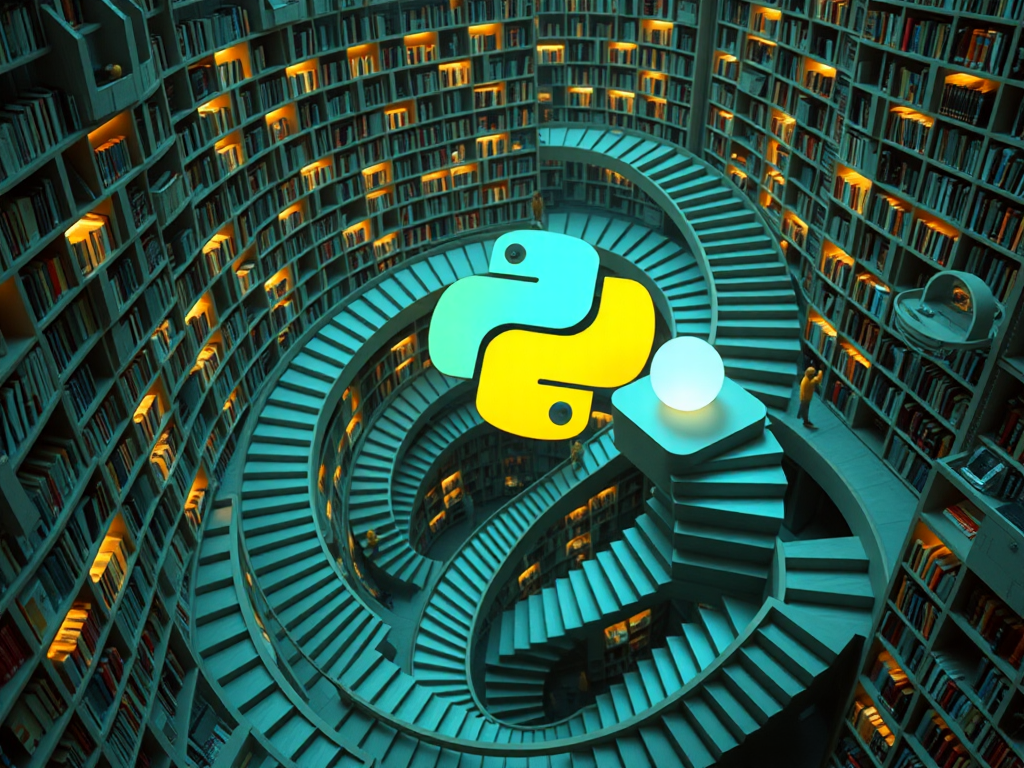Hey, have you been learning Python programming lately? Have you encountered some concepts that seem simple but actually leave you confused? Don't worry, today let's explore a few basic concepts and syntax features in Python. Understanding them will be very helpful for your programming journey!
Generators
Let's start with generators and the yield keyword. Generators are a special type of function in Python that use the yield keyword to produce a series of values, rather than returning all results at once like regular functions. You might ask, what's so good about generators?
The advantage of generators lies in their ability to handle large amounts of data more efficiently. Regular functions load all data into memory at once, while generators produce values one by one, only calculating the next value when needed, thus saving a lot of memory space. It's like when you're shopping, you don't buy everything in the store at once, but buy what you want when you see it, right?
A generator function returns a generator object each time it's called, and you can use the next() function to get the next value in the sequence. Many Python built-in data structures like lists, dictionaries, etc., use generators for implementation because they need to produce new values one after another. So mastering generators will be very helpful for understanding and using Python.
Metaclasses
Next, let's talk about metaclasses. Did you know that classes are also objects? Metaclasses are the "things" used to create these class objects. It's kind of like classes are "templates for objects", then metaclasses are "templates for classes".
The built-in function type in Python is a metaclass, used to create all classes. Metaclasses allow you to customize the class creation process, which is an advanced concept that requires a deep understanding of the internal structure and principles of classes.
Personally, I think that while metaclasses are powerful, for most Python programmers, it's enough to be aware of their existence, as they are not commonly used in practice. However, if you're interested in Python's object-oriented programming, studying how metaclasses work will greatly help you understand Python's classes and objects.
File Operations
File operations in Python are also an important basic skill. Checking if a file exists is one of the most basic operations. There are two common methods:
-
Using the os.path module. os.path.exists(path) can check if the specified path exists, while os.path.isfile(path) can further check if it's a file. This method is straightforward but requires importing the os module.
-
Using the pathlib library. pathlib provides an object-oriented way to operate on paths. You can use the Path.exists() and Path.is_file() methods to check files. This method has a more concise syntax and supports many other advanced features.
Both methods have their characteristics, and you can choose based on your specific needs. For example, if you just need to check if a file exists, the os.path module is sufficient; but if you need more complex path operations, the pathlib library might be more convenient.
Ternary Operator
Python has an interesting syntax sugar called the ternary conditional operator. It allows you to assign values based on conditions in a single line of code. The syntax is like this:
value_if_true if condition else value_if_false
Does it look a bit confusing? Let me give an example:
a = 1 if x > y else -1
This line of code means, if x is greater than y, assign 1 to a, otherwise assign -1 to a.
You might say, isn't this just a simple if-else statement? That's right, the purpose of the ternary operator is to make some simple conditional judgments more concise. It's very useful in some special scenarios, such as lambda functions or list comprehensions. However, be careful not to overuse it, as it might reduce code readability.
if name == "main"
Finally, let's talk about a statement you might often encounter but don't quite understand: if name == "main":
The purpose of this statement is to check whether the current running Python script is the main program (entry point) or is being imported for use by another program.
Every Python module (file) has a built-in variable name. When the module is run directly, the value of name is "main". But if this module is imported by another program, name will be the name of that module.
Taking advantage of this, we can write code in the same module that can both run as an independent program and be imported for use by other programs. Usually, the entry point code for the main program is placed in the if name == "main": conditional statement block.
The benefit of doing this is that it gives the program a better modular structure while also enhancing code reusability. Moreover, it prevents accidentally executing code you don't want to run when importing modules.
OK, these are the few Python basic concepts and syntax features I wanted to share today. Doesn't it seem a bit simpler than you imagined? It's very important to lay a good foundation for these basics in the process of learning programming. I hope that through my explanation, you can better understand and apply them. Of course, if you have any questions, feel free to ask me!





